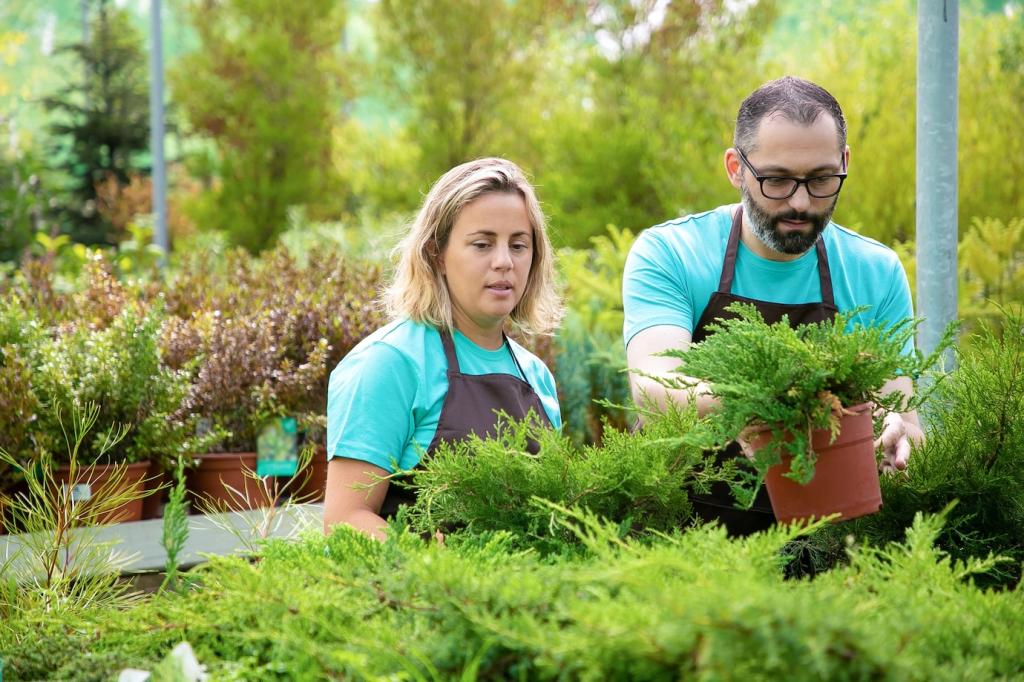How to Choose the Right Expert Gardener for Your Needs
Understanding Your Gardening Goals
Identifying Objectives
Spend some time reflecting on the purpose of your garden. Are you seeking a tranquil retreat, a space for social gatherings, or a sustainable source of fresh produce? Understanding your main objectives will help both you and the gardener focus strategies and make decisions that align with your lifestyle. A well-defined goal also makes it easier to set a realistic budget and timeline.
Considering Long-Term Plans
Think about how your needs might evolve over time. Perhaps you envision starting with simple landscaping and later expanding to include water features, pathways, or larger plantings. A reputable gardener can advise on scalable plans that won’t limit future possibilities. Discussing long-term aspirations up front allows for thoughtful planning and flexibility as your garden matures.
Assessing Personal Time Commitment
Decide how involved you wish to be in gardening tasks. Some homeowners want to be hands-on, while others prefer to delegate most responsibilities. By being clear about your desired level of involvement, you can choose a gardener whose services match your expectations, whether it’s occasional consultation or comprehensive management.
Verifying Certifications and Training
Investigate whether the gardener has completed any horticultural courses or holds industry-recognized certifications. These credentials signal a commitment to up-to-date best practices in gardening, pest management, and environmental sustainability. Being credentialed often means having a deeper understanding of plant biology and local growing conditions.
Evaluating Experience and Specializations
Ask about their professional background, years in business, and areas of specialty. Experience with gardens similar to yours is valuable, as are specialized skills such as organic gardening, arboriculture, or landscape design. A gardener who has handled comparable challenges will be more adept at anticipating problems and providing tailored solutions.
Investigating Reputation
Research the gardener’s reputation by reading testimonials and requesting references. This firsthand feedback provides insight into the quality of work, reliability, and client satisfaction. Pay attention to reviews that mention communication style, punctuality, and the ability to meet or exceed expectations.
Previous slide
Next slide

Reviewing Portfolio and Past Projects
Viewing Visual Proof
Ask to see photographs or visit local gardens that the expert has designed or maintained. Visual proof allows you to gauge their workmanship and whether their aesthetic aligns with what you envision. It’s an opportunity to see creativity, attention to detail, and the health of past projects firsthand.


Variety in Projects
A diverse portfolio demonstrates adaptability. If a gardener can point to successful projects in both small urban spaces and sprawling country estates, it indicates they can handle a range of environments and requirements. Versatility also means they’re prepared to troubleshoot and innovate, regardless of the challenges your garden may present.
Previous
Next
Prioritizing Reliability and Professionalism
Consistency in Service Delivery
A reliable gardener adheres to agreed schedules and performs tasks with care every visit. This consistency fosters trust and means your garden will thrive under their steady hand. Look for endorsements or reviews that praise punctuality, follow-through, and attention to detail.
Adherence to Agreements
Professional gardeners provide written contracts outlining services, timelines, and terms. Such documentation ensures that all parties are clear on responsibilities and deliverables. Contracts also outline procedures for unexpected events like bad weather, providing structure and preventing misunderstandings.
Problem Resolution and Guarantees
Every garden encounters challenges, from plant diseases to unforeseen weather. A professional gardener stands by their work, offering solutions and, where possible, service guarantees. It’s important to discuss their process for handling issues and rectifying problems, so you have assurance of support even when things don’t go as planned.
Considering Sustainability and Eco-Friendly Practices
Use of Organic and Native Plants
Find out where the gardener sources plants and materials, and whether they recommend native or drought-tolerant species. These choices typically require less water and maintenance, and support local ecosystems. Organic practices minimize harmful chemicals, protecting pollinators and reducing the risk of unwanted side effects.
Waste Management and Recycling
Ask how garden waste is handled, from composting clippings to recycling containers and using mulch produced from on-site materials. Responsible waste management practices demonstrate a commitment to environmental stewardship and can often lower maintenance costs over time.
Water Conservation Strategies
The right gardener will recommend efficient irrigation systems, rainwater collection, and mulching techniques to conserve water. Their expertise should include advice on soil health and moisture retention, ensuring your garden remains vibrant while minimizing environmental impact and utility costs.
